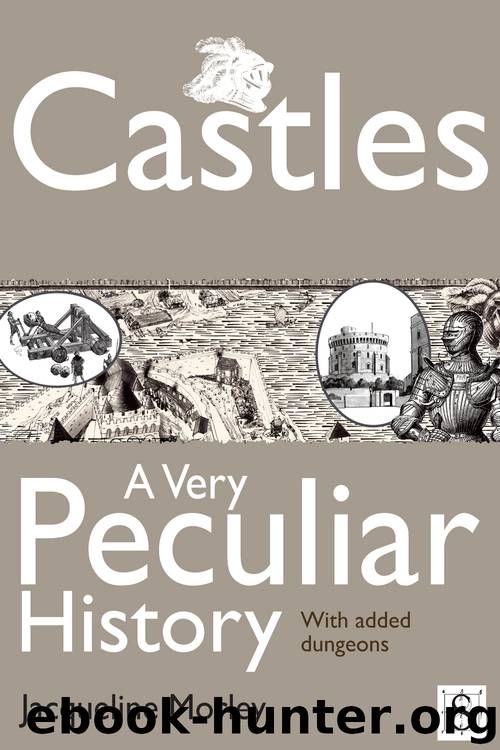Castles, A Very Peculiar History by Morley Jacqueline;

Author:Morley, Jacqueline;
Language: eng
Format: epub
Tags: gift, information, facts, trivia, quirky, stories, medieval, king, keep, queen, royal, britain, security, dungeon, knight, battle, seige, war, sword, building
ISBN: 879444
Publisher: Andrews UK
Published: 2012-02-13T16:00:00+00:00
CHAPTER SEVEN: Castle entertainments
Barons and knights were trained for an active life, and when they wanted to enjoy themselves they went outdoors. Hunting and tournaments were their favourite pastimes. A lord would take a hunting party for a whole day in the forest, with servants bringing a picnic. He would be after deer or wild boar. Small animals like hare or rabbits were beneath his attention.
Only kings and people of rank (including members of the Church) could hunt. This was the result of a most unpopular idea called ‘forest law’ that was brought to England by William the Conqueror. To ensure that he always had the pick of the hunting, William declared huge swathes of land to be royal game reserves.
Later kings kept adding to these ‘royal forests’. Anything in them that might upset the game was removed or forbidden. Villages were destroyed, farming banned, no-one could fell trees, and sometimes locals could not even gather firewood or acorns. Poachers could be hanged or mutilated. William II had people blinded merely for disturbing the deer.
This was a change from more easy-going Saxon times, and was much resented by ordinary people who had relied on the forest for food and fuel. Robin Hood and his Sherwood outlaws, whoever they may have been, became folk-heroes in legend for defying the forest law.
If you were in favour with the king, he would grant you a licence to hunt in any part of the royal forest that lay within your land. Then you could make your own regulations and pocket the poaching fines. If you didn’t have this privilege, you could stock a stretch of open land with deer to form a hunting park. This didn’t need a licence, but if your deer fled into the royal forest and you followed them, you would be punished.
The most aristocratic form of hunting was falconry, in which trained birds of prey swooped down on birds in flight and brought them to the ground. Launching your bird beyond arrow-range to make a strike was a dizzying thrill in the days before guns.
The falcons were looked after by an official called the fowler. Each bird responded to its individual trainer, so nobles usually kept their favourite bird with them: on their wrist, behind their seat at meals, and on a perch in their chamber at night.
Download
This site does not store any files on its server. We only index and link to content provided by other sites. Please contact the content providers to delete copyright contents if any and email us, we'll remove relevant links or contents immediately.
Kathy Andrews Collection by Kathy Andrews(11358)
The remains of the day by Kazuo Ishiguro(8426)
Paper Towns by Green John(4819)
Spare by Prince Harry The Duke of Sussex(4811)
Industrial Automation from Scratch: A hands-on guide to using sensors, actuators, PLCs, HMIs, and SCADA to automate industrial processes by Olushola Akande(4647)
The Body: A Guide for Occupants by Bill Bryson(4614)
Machine Learning at Scale with H2O by Gregory Keys | David Whiting(3684)
Be in a Treehouse by Pete Nelson(3659)
Harry Potter and the Goblet Of Fire by J.K. Rowling(3624)
Never by Ken Follett(3559)
Goodbye Paradise(3471)
The Remains of the Day by Kazuo Ishiguro(3152)
Into Thin Air by Jon Krakauer(3142)
The Cellar by Natasha Preston(3085)
The Genius of Japanese Carpentry by Azby Brown(3052)
Fairy Tale by Stephen King(2989)
120 Days of Sodom by Marquis de Sade(2953)
Drawing Shortcuts: Developing Quick Drawing Skills Using Today's Technology by Leggitt Jim(2944)
The Man Who Died Twice by Richard Osman(2829)
